Dziennikarz gastronomiczny? Krytyk kulinarny? Bloger piszący o jedzeniu? Jak się zajmować profesjonalnie gastronomią? Niewiele jest zajęć i tematów które, by bardziej zbliżały ludzi niż radość jedzenia. Jedzenie symbolizuje znacznie więcej niż tylko biologiczną konieczność. Jest częścią naszej tożsamości społecznej, kulturowej, religijnej i narodowej. Jeśli kochasz jedzenie i pisanie oraz chciałbyś podzielić się swoimi doświadczeniami z resztą świata, może właśnie pisanie o jedzeniu i gastronomii jest dla Ciebie?
Pisanie o gastronomii brzmi magicznie. Nieustające wizyty w restauracjach, degustacje wykwintnych menu, podróże o wymarzonych kierunkach gastronomicznych świata. Taki stereotyp funkcjonuje w powszechnych wyobrażeniu. Jak wygląda rzeczywistość?
Pisząc o jedzeniu
Przede wszystkim musimy sobie bardzo jasno uzmysłowić, że pisanie o gastronomii to bardzo ogólnikowe pojęcie. Często upraszczając nazywamy tę działalność po prostu recenzowaniem jedzenia. Jednak zupełnie czym innym jest pisanie np. o historii jedzenia, publikowanie przepisów a czym innym recenzje z wizyt w restauracjach. Zupełnie inną kategorią jest również pisanie o branży i dla branży gastronomicznej. Dla przykładu magazyn „Restauracja”, który mam w swojej pieczy jest pismem branży gastronomicznej. Nie znajdziesz u nas przepisów, bowiem naszym czytelnikiem jest szef kuchni, który doskonale sam wie jak ma gotować i co. W wachlarzu naszych tematów są zagadnienia bardziej techniczne prowadzenia restauracji, aspekty prawne, podatkowe, logistyczne, profesjonalny sprzęt etc. Mimo, że temat jedzenia jest bliski właściwie każdemu – mniej lub bardziej każdy coś o jedzeniu sądzi, coś lubi czegoś nie etc., to nie ma na chwilę obecną przesadnie rozbudowanej prasy kulinarnej. Punkt ciężkości pisania o jedzeniu przesunął się do internetu. To nie są czasy, aby poświęcić się pisaniu w prasie i żyć spokojnie, zwłaszcza, że tytuły poczytnych magazynów lifestylowych jak i branżowych znikają. Dziś dodatkowo stoimy w obliczu bardzo realnego zastąpienia nas osób piszących o czymkolwiek przez sztuczną inteligencję, która w zaskakującym tempie i przy postępie algorytmów jest w stanie wygenerować tekst o czym tylko sobie zamarzymy. Te tytuły, które pozostały bardzo rzadko zatrudniają na etat, a raczej wybierają współpracę i płatność tzw. wierszówki od tekstu. Stąd też wielu dziennikarzy pracuje na wielu frontach, czasem też na obrzeżach dziennikarstwa jako copywriter, czy specjalista do spraw PR etc. To doskonałe miejsca, aby szlifować swój warsztat, zdobywać doświadczenie, poznawać branżę. Z drugiej jednak strony, prawdą jest, że każdy potrzebuje jedzenia i nie każdemu udaje się jeść i gotować dobre jedzenie. Wysokiej jakości kuchnia, to subtelna sztuka wykraczająca poza zwykłą potrzebę wyżywienia rodziny. Od gotowania w domu po najlepsze restauracje w miastach takich jak Paryż czy Nowy Jork, jedzenie i gotowanie może być czymś więcej. Pisanie o jedzeniu to sposób na uchwycenie miłości ludzi do jedzenia i przekształcenie jej w przedsięwzięcie zarabiające pieniądze.

fot. Pinterest
Co zatem?
Jeśli naprawdę kochasz pisać o jedzeniu to pozostaje wykorzystywanie mediów społecznościowych, portali internetowych i blogowanie – a w przyszłości być może zostaniesz autorem książek o tej tematyce. Istnieją setki, jak nie tysiące blogów jedzeniowych we wszystkich językach świata. Niektóre typowo przepisowe, inne stanowiące rodzaj pamiętnika twórcy z jego smakowych odkryć i przeżyć. Czasem jest to połączenie obu, jak na przykład słynny blog Julie Powell o jej przygodzie z przepisami Julii Child w kontekście jej życia w nowojorskim mieszkaniu i perypetii z jej mężem i kotami. Istnieją również strony z recenzjami restauracji. Autorzy odwiedzają restauracje i dzielą się swoją subiektywną oceną na temat lokalu pod kątem jakości jedzenia, obsługi i cen. Miłośnicy jedzenia polegają zaś na tych recenzjach restauracji, aby podejmować świadome decyzje dotyczące tego, gdzie są zapewnione najlepsze wrażenia kulinarne. Właściciele restauracji również polegają na recenzjach restauracji, aby uzyskać informacje i opinie, które pomogą im ulepszyć jakość jedzenia i usług. Niektórzy autorzy skupiają się zaś na historii jedzenia, koncentrują się na kulturowym, środowiskowym, ekonomicznym i socjologicznym wpływie jedzenia na nasze życie. Podczas gdy są autorzy książek kulinarnych, którzy mają wyższe stopnie naukowe w tej dziedzinie, inni po prostu piszą o swoim kulinarnym dziedzictwie. Jedną z najważniejszych rzeczy, aby odnieść sukces w pisaniu artykułów kulinarnych, jest posiadanie głębokiej wiedzy na temat tego, o czym piszesz. Istnieją różne rodzaje pisania o historii żywności, w tym historia jedzenia, historia diety, historia kulinarna, historia odżywiania i historia posiłków. Kultową postacią piszącą o jedzeniu i konotacjach z różnymi dziedzinami jest amerykański autor Michael Pollan.
Krytyk, a może influencer?
Przez większą część ubiegłego stulecia najbardziej prestiżowi byli krytycy kulinarni piszący dla prasy codziennej na całym świecie i kilku recenzentów restauracji dla wpływowych magazynów. Jednak wraz z rozwojem mediów społecznościowych i platform internetowych zmieniła się rola oceniania czy po prostu pokazywania miejsc wartych odwiedzenia. Krytycy gastronomiczni utracili swój status quo. Teraz każdy może podzielić się swoimi kulinarnymi doświadczeniami i opiniami, a blogerzy kulinarni, vlogerzy i influencerzy z większą liczbą obserwujących zaczęli docierać do szerszego grona odbiorców. Przecież internet nie ogranicza się do jednego felietonu tygodniowego i kilkudziesięciu linii tekstu na temat wybranej restauracji. Zarzutem stawianym czasem pod adresem blogerów restauracyjnych oraz influencerów amatorów jest to, że brakuje im referencji i wiedzy specjalistycznej, aby oceniać kuchnię restauracyjną. Argumenty te nie uwzględniają faktu, że w krytyce kulinarnej nie ma żadnych ustalonych kwalifikacji. Zatem wiedza w zakresie oceniania jedzenia – zarówno dla profesjonalistów, jak i amatorów – opiera się na doświadczeniu, a nie na formalnym szkoleniu i kwalifikacjach. I mimo że osoby te nie ponoszą odpowiedzialności przed redaktorem, to jednak jest coś takiego jak własna etyczna odpowiedzialność recenzowania restauracji. Influencerzy gastronomiczni znaleźli lukę, którą wypełniają. Odwiedzają miejsca, do których krytycy często by nie dotarli, ekspresyjnie wykorzystują swój zasięg i w ten sposób poszerzają grono odbiorców. Wiedzą, jak w pełni wykorzystać potencjał mediów społecznościowych. Wielu z nich podkreśla, że woli samemu odkrywać miejsca niż być zapraszanym, bo to daje im większe pole do bycia obiektywnym.

fot. Pinterest
Warsztat i jeszcze raz warsztat!
Jak zostać osobą piszącą o świecie ingrediencji i kulinariów? Pracuj nad swoim warsztatem. Nie można lepiej pisać, jeśli samemu się nie czyta. Docieraj do wartościowej literatury o kuchniach świata, składnikach, antropologii jedzenia etc. Podpatruj mistrzów – przeczytanie chociażby „W stronę Swanna” Marcela Prousta pokaże Ci co to znaczy opis jedzenia. Twoje teksty o jedzeniu muszą wywoływać w czytelnikach pozytywne emocje, aby chcieli doświadczyć tego z tobą. Jedną z rzeczy, która odróżnia odnoszących sukcesy osób piszących o świecie kulinarnym od reszty, są ich potężne umiejętności opisowe. W przeciwieństwie do treści wideo, w których widzowie mogą zobaczyć, co się dzieje, czytelnicy esejów i tekstów kulinarnych są zależni od opisów autora. Doświadczenie jedzenia wykracza poza to, co możesz posmakować językiem i obejmuje inne narządy zmysłów: dotyk, węch i słuch. Eksperci uważają, że autorzy artykułów kulinarnych powinni skupić się na pięciu zmysłach. Zdolność pisarza do używania przymiotników opisowych w celu wyjaśnienia, w jaki sposób zmysły postrzegają jedzenie, sprawia, że czytanie staje się przyjemnością. Autor powinien ożywić i opisać czytelnikom wszystkie doświadczenia związane z określoną kulturą jedzenia. Poprawa umiejętności pisania ułatwi wyrażanie swoich myśli czytelnikom. Po drugie podróżuj kulinarnie, po Polsce, po smakach regionów, po innych krajach, próbuj, podpatruj, opisuj. W miarę możliwości uczestnicz w warsztatach i kursach kulinarnych. To, co mówią o byciu specjalistą od wszystkiego i mistrzem w niczym, jest prawdą w przypadku pisarstwa o jedzeniu. Ludzie piszący o jedzeniu robią to z różnych punktów widzenia. Chociaż istnieje kilka sposobów pisania o jedzeniu, lepiej skupić się na obszarze, w którym odczuwasz największą pasję. Moją jest na przykład wino i jedzenie. Wino to według mnie soczewka do podpatrywania innych kultur. Wino jest częścią cywilizacji europejskiej, odzwierciedla miejsce, obrazuje rocznik, współgra z przyrodą, ale także jest sztuką. To nieodzowny element diety śródziemnomorskiej – naturalny ferment. Jak określił Ludwik Pasteur, wino jest najzdrowszym i najbardziej higienicznym napojem na świecie. Określenie obszaru lub obszarów, na których chcesz się skoncentrować, zależy od tego, gdzie masz silną przewagę tak zainteresowania jak i wiedzy. Eksperci uważają, że najlepiej pisać na ten temat, z którym jest się emocjonalnie powiązanym.
Koncentrowanie się na pisaniu o jedzeniu, które znasz, przynosi wiele korzyści. Pisanie o jedzeniu, które znasz i lubisz, daje ci przewagę nad kimś, kto go nie zna. Wybór niszy kulinarnej, która cię pasjonuje, sprawi, że będziesz pisać z większą wprawą i przyjemnością. Dobre eseje i teksty o jedzeniu dotyczą jedzenia i tych, którzy za nim stoją. Dlatego nie powinieneś ograniczać swojego pisania do samego jedzenia. Pisanie o jedzeniu jest fascynujące, gdy autor bada relacje i osobiste powiązania ludzi z jedzeniem. Porozmawiaj z szefami kuchni, poznaj ich historie i fascynacje. Autorzy artykułów kulinarnych odnoszący sukcesy muszą posiadać wiedzę na dany temat i być na bieżąco z najnowszymi trendami żywieniowymi. Jeśli chcesz zaś zostać krytykiem kulinarnym pamiętaj, że z definicji jest to osoba pisząca i specjalizująca się w przemyślanym komentarzu na temat swoich doświadczeń kulinarnych. Odwiedza restauracje, próbuje jedzenia i raportuje o swoich doświadczeniach – nie tylko na temat samego jedzenia, ale wszystkiego, od atmosfery po obsługę.
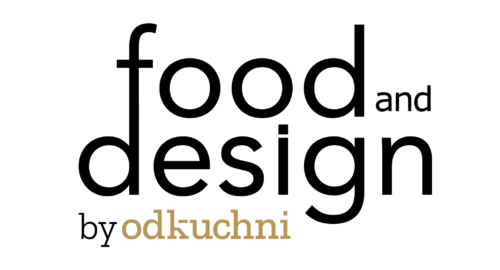
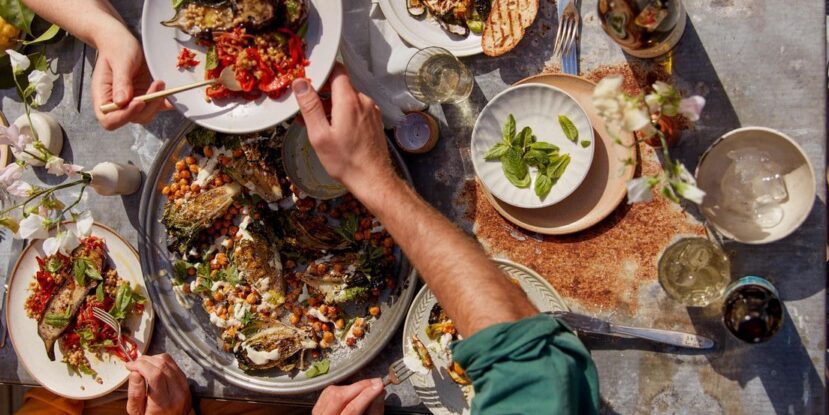
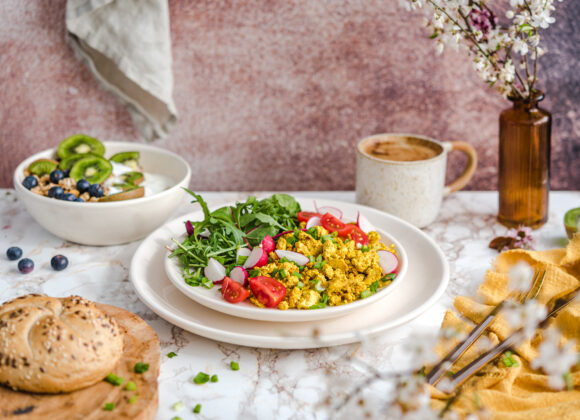

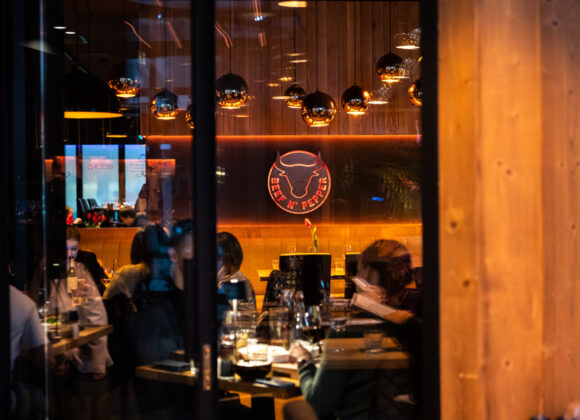
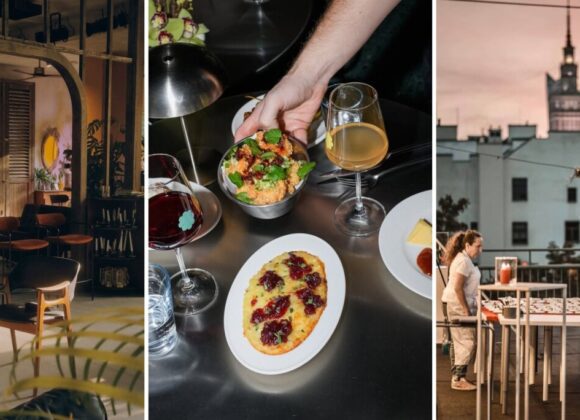
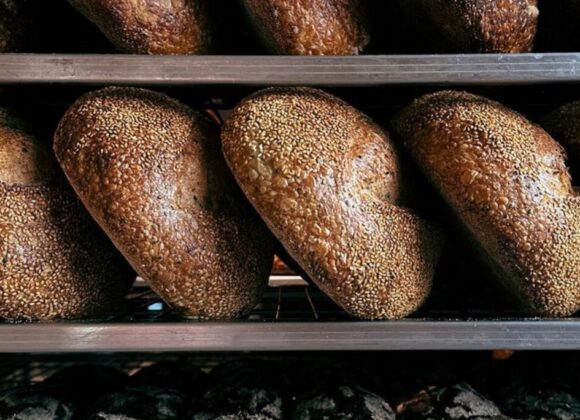
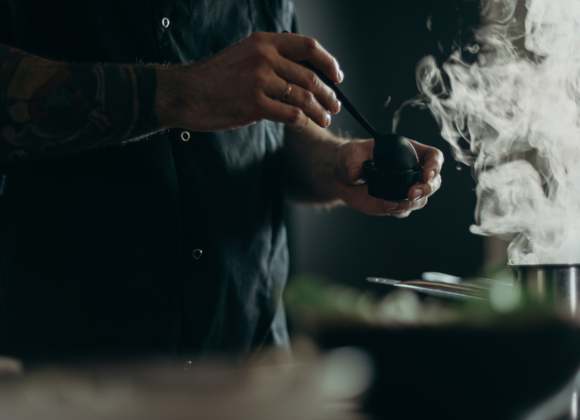


 Młodszy specjalista ds. komunikacji marketingowej i PR.
Młodszy specjalista ds. komunikacji marketingowej i PR.


 Absolwent Uniwersytetu Warszawskiego oraz Szkoły Głównej Gospodarstwa Wiejskiego. W branży HoReCa od ponad 10 lat. Przez lata związany z Grupą Trip, Sobienie Królewskie Golf and Country Club oraz restauracją Florentin w Warszawe.
Absolwent Uniwersytetu Warszawskiego oraz Szkoły Głównej Gospodarstwa Wiejskiego. W branży HoReCa od ponad 10 lat. Przez lata związany z Grupą Trip, Sobienie Królewskie Golf and Country Club oraz restauracją Florentin w Warszawe. Absolwentka Wydziału Architektury Politechniki Warszawskiej na kierunku Architecture for Society of Knowledge oraz Komunikacji Wizualnej na Politecnico di Milano. Specjalistka od budowania nastroju. Doświadczenie zdobywała w kraju i zagranicą podczas licznych warsztatów międzynarodowych (Sevilla, Lizbona, Florencja), stypendium na La Sapienza (Rzym) oraz pracując m.in. w Carmi e Ubertis i ADM Milano.
Absolwentka Wydziału Architektury Politechniki Warszawskiej na kierunku Architecture for Society of Knowledge oraz Komunikacji Wizualnej na Politecnico di Milano. Specjalistka od budowania nastroju. Doświadczenie zdobywała w kraju i zagranicą podczas licznych warsztatów międzynarodowych (Sevilla, Lizbona, Florencja), stypendium na La Sapienza (Rzym) oraz pracując m.in. w Carmi e Ubertis i ADM Milano.








 Menedżer z wieloletnim doświadczeniem w branżach kosmetycznej, spożywczej, dziecięcej. W trakcie swojej kariery związany z firmami takimi jak: L’Oreal, Samsung, Danone-Nutricia, Unilever. W ciągu swojego życia zawodowego odpowiadał między innymi za rozwój sprzedaży i contentu eCommerce w Polsce i krajach Europy Środkowo-Wschodniej.
Menedżer z wieloletnim doświadczeniem w branżach kosmetycznej, spożywczej, dziecięcej. W trakcie swojej kariery związany z firmami takimi jak: L’Oreal, Samsung, Danone-Nutricia, Unilever. W ciągu swojego życia zawodowego odpowiadał między innymi za rozwój sprzedaży i contentu eCommerce w Polsce i krajach Europy Środkowo-Wschodniej. 

























































